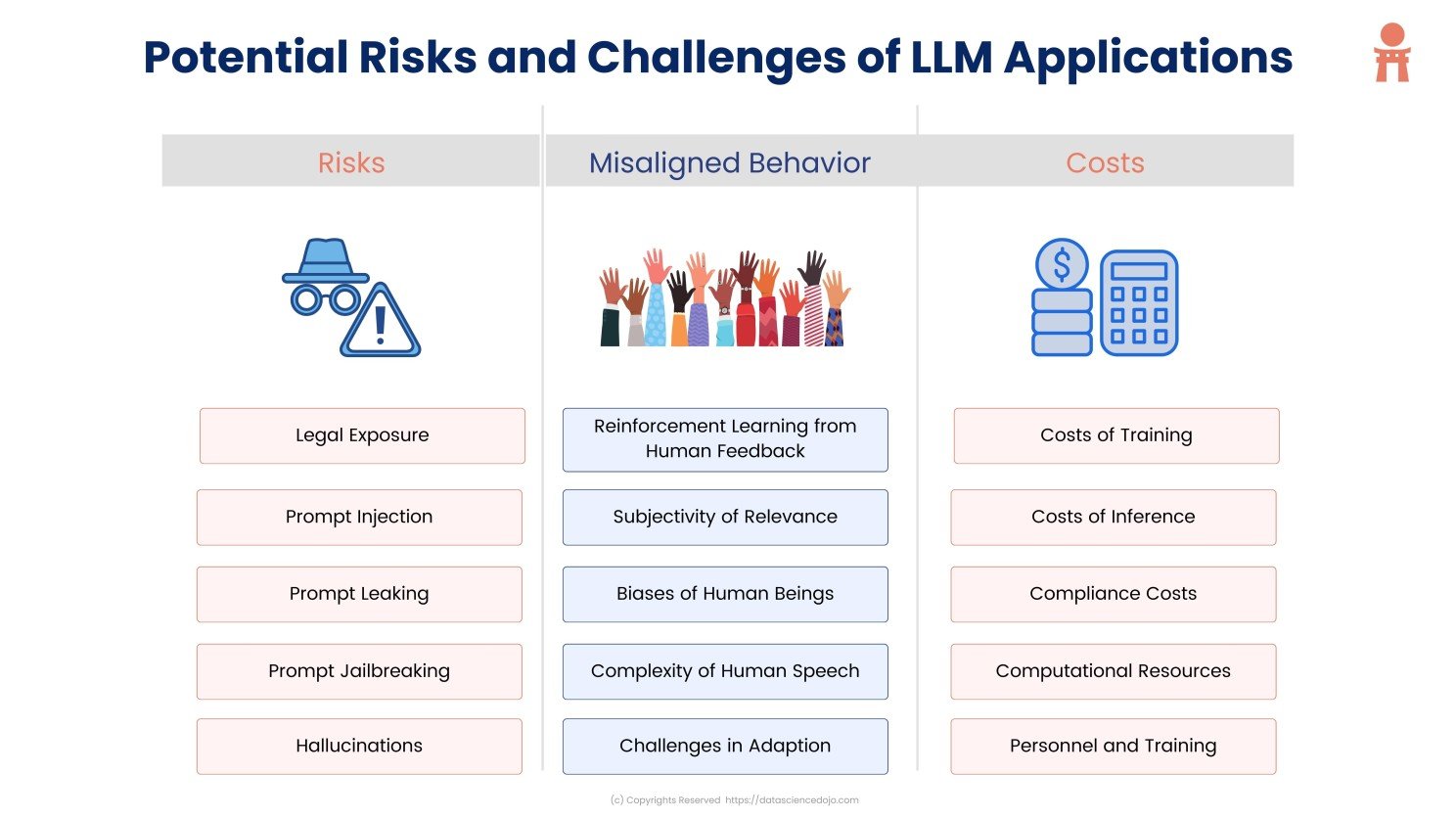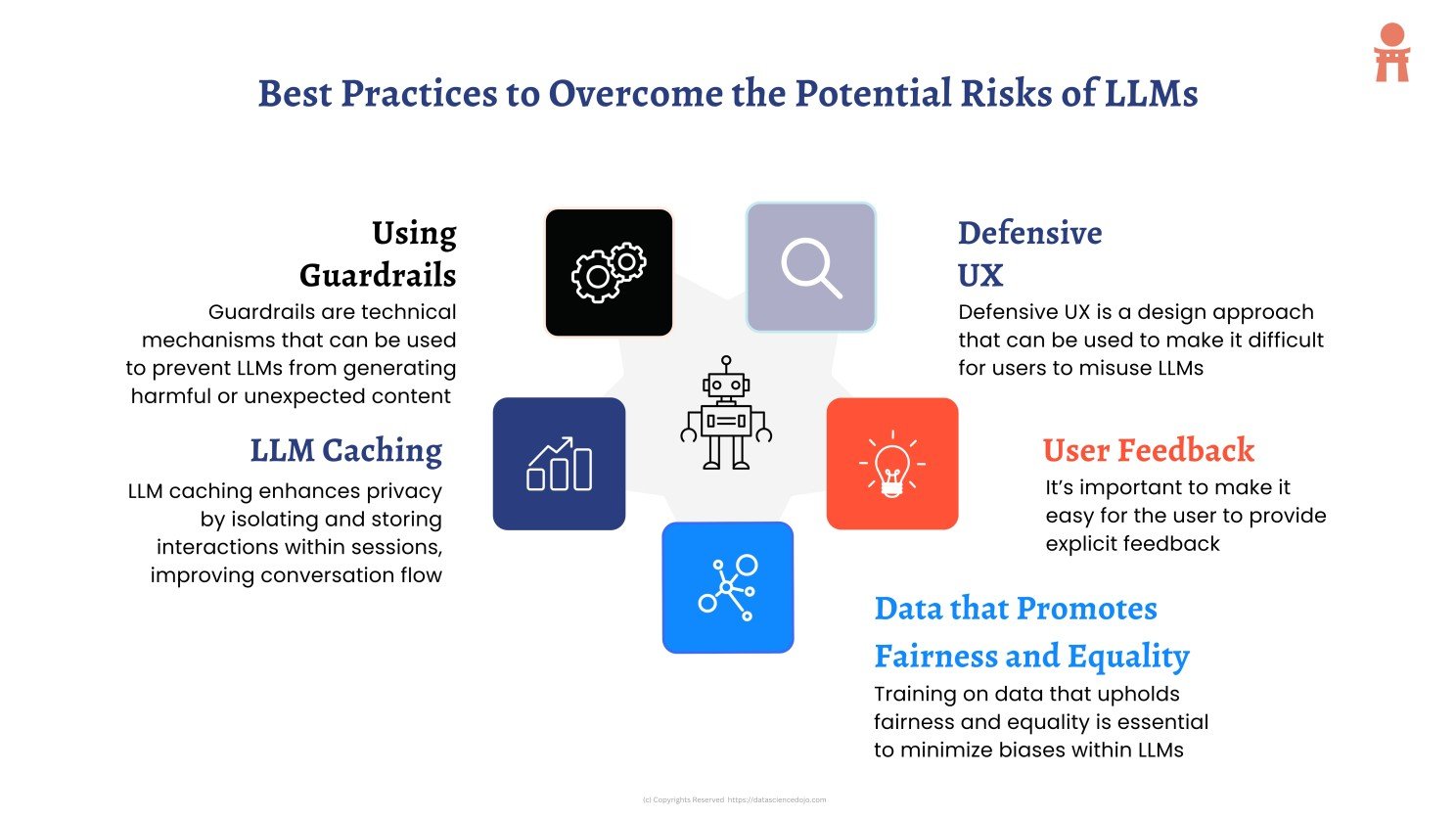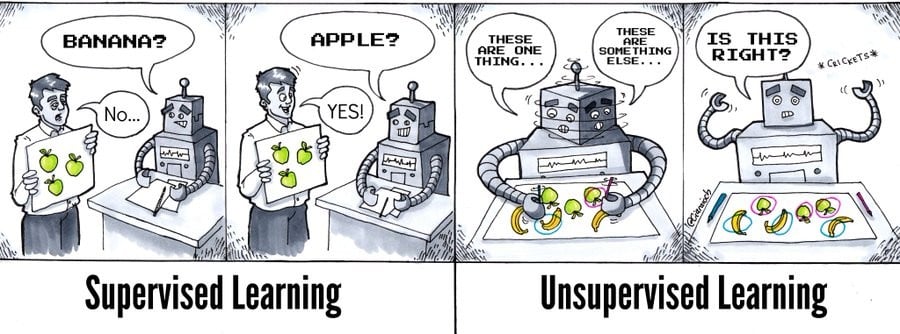Welcome to Data Science Dojo’s weekly newsletter, The Data-Driven Dispatch! In this week’s dispatch, we will dive deeper into the risks of AI and large language models.
Are you avidly using tools like ChatGPT, Gemini, MidJourney, etc? If so, do you ever find yourself pondering the potential risks associated with generative AI?
Could it gain access to our personal data and potentially share it with unauthorized parties? What if it falls into the wrong hands for malicious purposes, like hotwiring a car? Here’s an example:
Here’s more. How can we ensure that the content it produces is consistently accurate and reliable? In a nutshell, can we place our trust in generative AI?
Indeed, these are just a few of the formidable challenges that large language models pose to both their users and developers alike.
Let’s delve into these risks and examine various strategies to mitigate them.
Here are headlines for the week that are shaping the progress of Generative AI.
1- President Biden Issues Executive Order on Safe, Secure, and Trustworthy Artificial Intelligence: President Biden’s executive order promotes responsible AI development, mandates sharing safety test results for powerful AI systems with the U.S. government, addresses AI bias within federal agencies, and enhances international collaboration on AI safety and security.
2- Google Bets $2 Billion on AI Startup Anthropic, Inks Cloud Deal: Google is investing $2 billion in AI company Anthropic, following Amazon’s $4 billion investment. Google’s investment in Anthropic is in the form of a convertible note. The convertible note will convert to equity in Anthropic at the next funding round. Read more
3- Generative AI Startup 1337 (Leet) is Paying Users to Help Create AI-Driven Influencers: The rise of virtual influencers, driven by AI and AI image generators, is a growing trend in the digital world. A company called 1337 is leveraging generative AI to create a community of AI-driven micro-influencers with diverse interests and backgrounds. These AI-driven entities engage with users in unique ways and will officially launch in January 2024. Read more
Risks of AI – Can We Trust LLMs?
We cannot rely on LLMs fully for now. There are many challenges with these models that affect both individual users and society as a whole. Before we dive deeper, let’s list down these challenges.

Dive deeper: Cracks in the Facade: Major Risk of AI Applications
Privacy Concerns:
Privacy issues are one of the biggest risks of AI. These models can end up learning and storing confidential or unauthorized data, like personal information such as email addresses and phone numbers. Moreover, there’s a risk that this kind of data could accidentally leak out when people use different methods to interact with these models.
Brittleness of Prompts:
LLMs can be readily manipulated through prompts. Here’s how:
- Prompt Leakage: Compelling the model to inadvertently disclose its own prompt instructions.
- Prompt Injection: Taking control of an LLM’s output by introducing an untrusted command.
- Jailbreaking: Circumventing a model’s safety measures by using prompts.
Misinformation From the Hallucinating Model:
LLMs hallucinate. Sometimes a lot! Leading us to question the reliability of their outcomes.
There are several factors that can contribute to hallucinations in LLMs, including the limited contextual understanding of LLMs, noise in the training data, and the complexity of the task. Hallucinations can also be caused by pushing LLMs beyond their capabilities. Read more
How Do We Foster AI Safety? Industry Solutions Ahead:
Now that we have discussed the risks of AI, let’s jump to the good news already. Thankfully, we can counter these challenges to promote AI safety in several ways.

Read more: Best practices to mitigate the challenges and risks of AI
AI Risks: From the Lens of Developers to Users
We heard you! Here’s an in-depth tutorial where Raja Iqbal, Chief Data Scientist at Data Science Dojo shares insights from his vast experience in building LLM-powered applications. He talks about various issues such as how the subjectivity of relevance impacts user experience, the cost of training and inference, and more.
If you want to dive deeper into LLMs and generative AI, follow us on YouTube
While machines are getting smarter every day, it’s funny how they can struggle with very basic things!
Though fostering AI safety can be tough, every revolution brings its own share of issues. Nevertheless, large language models are now a part of our reality, and they’re here to stay.
The good news is that they’re not limited to big tech; individuals and businesses alike can embrace and benefit from this technology!
We strongly encourage you to dive into this high-demand knowledge journey and begin your exploration of LLMs. Here are top-notch bootcamps focused on large language models and generative AI that you should consider:
Finally, if YouTube is your go-to place to learn, here are the best YouTube channels that will help you understand the emerging architecture of large language models: Top 10 YouTube videos to learn large language models








